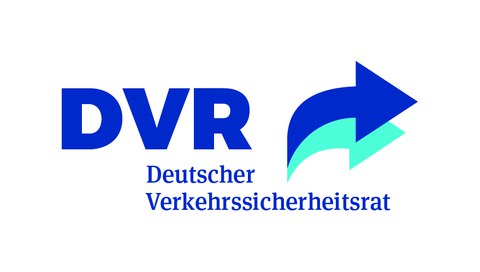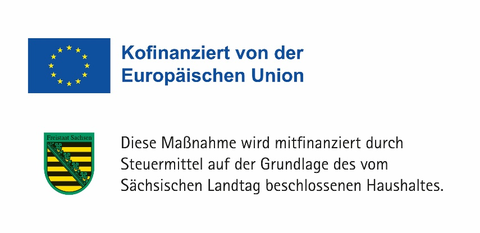Current projects

DVR-Logo
Sponsor: German Road Safety Council (DVR)
Contact: Dipl.-Psych. Juliane Anke, M.Sc. Simon Heintzen
Duration: December 2025 – June 2026
The aim of the project is to systematically record accidents, relevant risk factors and prevention potential in the everyday working lives of riders. To this end, the Chair of Traffic Psychology is developing a multilingual online survey that collects data on key influencing factors such as accidents and near misses, knowledge of rules, traffic acculturation, risk-relevant behaviour and suggestions for improvement from the riders' perspective. The survey is being designed in collaboration with experts from road safety, trade unions, industry representatives and riders themselves to ensure high practical relevance.
Based on the data collected, the professorship is conducting a comprehensive data-based evaluation. This ranges from descriptive analyses of accidents to statistical models that examine the relationships between various influencing factors and the risk of accidents. The results form the basis for evidence-based recommendations for action for politicians, delivery services, local authorities and prevention actors.
The project thus creates the first sound empirical basis for the road safety of riders in Germany and provides concrete starting points for how working conditions, infrastructure and traffic behaviour can be specifically improved.
Sponsor: EFRE InfraProNet 2021-2027
Project partners: Chair for Transport Systems Automation Technology (ITVS) TU Dresden, Chair for Traffic Process Automation (VPA) TU Dresden
Contact: Prof. Dr. Tibor Petzoldt, M.Sc. Simon Heintzen
Duration: Juli 2025 – Dezember 2027
The interdisciplinary research project PROTEKT aims to improve the safety of vulnerable road users (VRUs) in urban areas through modern communication technologies. The focus is on the further development and integration of V2X (Vehicle-to-Everything) technologies. By collecting and networking relevant traffic data in real time, critical situations can be identified at an early stage and preventive warnings issued.
In this project, the Chair of Traffic Psychology is investigating the perception and decision-making processes of cyclists in complex urban traffic areas – particularly at intersections where different modes of transport such as cyclists, motorised private transport and public transport converge. The focus is on how vulnerable road users (VRUs) assess risks in dynamic traffic situations, which visual, acoustic or infrastructural cues they rely on, and under what conditions dangers are overlooked. Empirical studies, such as observations in real traffic, simulations and surveys, are used to identify typical perception errors, attention patterns and risk assessments. These findings form the basis for designing V2X-based communication and warning systems in such a way that they support cyclists' decision-making processes and defuse critical situations at an early stage.
Sponsor: European Union HORIZON
Project Partners: Q-Plan International Advisors PC (Greece), Tallinn University of Technology (Estonia), University of Modena and Reggio Emilia (Italy), Institute of Communication and Computer Systems (Greece), Algebra University (Croatia), University of Novi Sad (Serbia), Institute of Studies for the Integration of Systems (Italy), White Research SRL (Belgium), Agency for the Promotion of European Research (Italy), Region of Central Macedonia (Greece), Road Traffic Safety Agency (Serbia), Dissemination Science Communication DISSCO Lab (Switzerland), International Road Federation (Switzerland)
Contact: Dr. Tina Morgenstern, Dr. Jens Schade
Duration: July 2025 – June 2028
The EU project Roads4All promotes a positive traffic safety culture aligned with the EU’s Vision Zero objective. The project addresses road safety from a broad cultural and institutional perspective, aiming to shift attitudes and behaviors at the individual, organizational and institutional levels. To support this transformation, Roads4All develops evidence-based tools – including a traffic safety culture model of road user behavior, a framework for traffic cultural transformation and a decision support toolkit. A central element is the design, implementation and evaluation of “Living Roads” – integrated, context-sensitive, and theory-informed interventions piloted in five diverse European settings. The interventions include school education, awareness campaigns, micro-mobility and actions targeting authorities and institutions. Overall, Roads4All seeks to drive holistic change across road users, organizations, and institutions – with a particular focus on youth – to contribute to safer, more inclusive and sustainable mobility systems across Europe.
The Chair of Traffic and Transport Psychology contributes to the project by developing the traffic safety culture model of road user behavior, conducting measurements of traffic safety culture and designing and implementing evidence-based interventions within an experimental research framework.
The project is funded by the HORIZON Research and Innovation Program of the European Union under grant number 101203314.

EU Logo
Sponsor: Federal Highway and Transport Research Institute
Project number: FE 03.0623/2022/GRB
Project partner: ELECTRIC-SPECIAL Photronicsysteme GmbH
Contact person: Dr.-Ing. Christoph Schulze
Duration: May 2025 – April 2027
Today, adaptive road lighting systems vary significantly in their technical features and modes of operation, largely driven by advances in the underlying technologies. Additionally, the technical specifications and requirements of these systems differ from one installation to another. To effectively address climate, emissions, and environmental protection goals, it may be counterproductive to define technical specifications individually for each installation. Instead, comprehensive operational concepts for adaptive road lighting are needed.
These concepts should incorporate at least the temporal and spatial dimensions of adaptive operation. Ideally, they should also consider factors such as traffic conditions and the functional role of the road within the broader transport network.
This project aims to identify the key components of such operational concepts, taking into account both technical and operational factors, as well as broader street lighting issues such as benefits, costs, and potential negative impacts. To achieve this, the project will include literature reviews, field studies, and workshops, among other activities.
Sponsor: Federal Highway and Transport Research Institute
Project number: FE 77.0603/2022
Contact person: Dr.-Ing. Christoph Schulze, Dr. Sven-Thomas Graupner
Duration: Juli 2024 – June 2027
Road lighting systems on streets and paths adjacent to main roads have not yet been evaluated in terms of luminance. However, such evaluation could support the development of lighting systems that better enhance visibility and traffic safety. Designing and assessing lighting based on luminance may also help reduce energy consumption and avoid excessive illumination, thereby minimizing obtrusive lighting effects and their associated environmental impacts.
This project will carry out various studies to develop and evaluate a luminance-based road lighting concept specifically tailored for areas with a 30 km/h speed limit and for cycle paths. Additionally, it will examine the combined effects of road lighting and vehicle lighting on visibility, with a focus on identifying potential solutions for adaptive lighting.
Sponsor: Federal Highway Research Institute
Project partner: infas (Institut für angewandte Sozialwissenschaft)
Contact person: M. Sc. Lisa Zwicker, Dr. Dipl.-Psych. Jens Schade
Duration: April 2024 – September 2025
The German Road Traffic Code (Straßenverkehrs-Ordnung, StVO), among other things, lays down rules for behaviour in road traffic in Germany. They are intended to promote road safety and to minimize the potential for conflicts between the various road users. Non-compliance with rules of conduct is one of the main reasons for road accidents. It can be caused by (correct) knowledge of a rule and deliberately breaking it - i.e. violating the rule. On the other hand, non-compliance can be due to a lack of or incorrect knowledge of the rule.
The project "Survey on the level of knowledge regarding the rules of conduct in road traffic" is therefore investigating the population's knowledge of certain traffic and conduct rules. The focus is primarily on those rules that are highly relevant to road safety. The aim is to describe the level of knowledge according to different age groups and groups using different means of transport (e.g. car drivers, motorcyclists, people on foot). To this aim, an online questionnaire and a telephone survey will be designed and conducted by the project partner infas.
Project partner: Audi AG
Contact: Prof. Dr. Tibor Petzoldt, M. Sc. Jenny Damme
Duration: Jan. 2023 – Jan. 2026
Many people hope for benefits from automated driving, including safer und smoother traffic. However, these benefits can only come into their full effect if the behaviour of automated vehicles is accepted by the majority of people, consequently developing a willingness to use them.
In order to create acceptance, it is advisable to design the behaviour of automated vehicles in close coordination with the expectations of potential users and interaction partners. Expectations of driving dynamics behaviour from the aspect of comfort (e.g. longitudinal and lateral acceleration) have already been investigated many times. In contrast, the expectations of the system design concerning the behaviour at manoeuvring level (e.g. overtaking and merging manoeuvres) have remained almost unnoticed so far.
Therefore, the project wants to clarify which parameters have an influence on the acceptance of the behaviour of automated vehicles at manoeuvring level (e.g. personality traits and traffic culture). On the one hand, the aim is to identify parameters that should be taken into account when designing the behaviour in general. On the other hand, concrete design recommendations for the behaviour in the context of selected driving manoeuvres and influencing parameters are to be derived.
To this end, a series of investigations will be conducted. Test persons will be presented with different driving manoeuvres using pictures and videos as well as a virtual reality driving simulator and common vehicle. The behaviour and selected parameters will be varied, respectively. They will be asked to evaluate the different behaviours (e.g. in terms of their acceptability and usefulness). In the virtual reality driving simulator and common vehicle the behaviour of the test persons will also be recorded (e.g. takeover and gaze behaviour).


